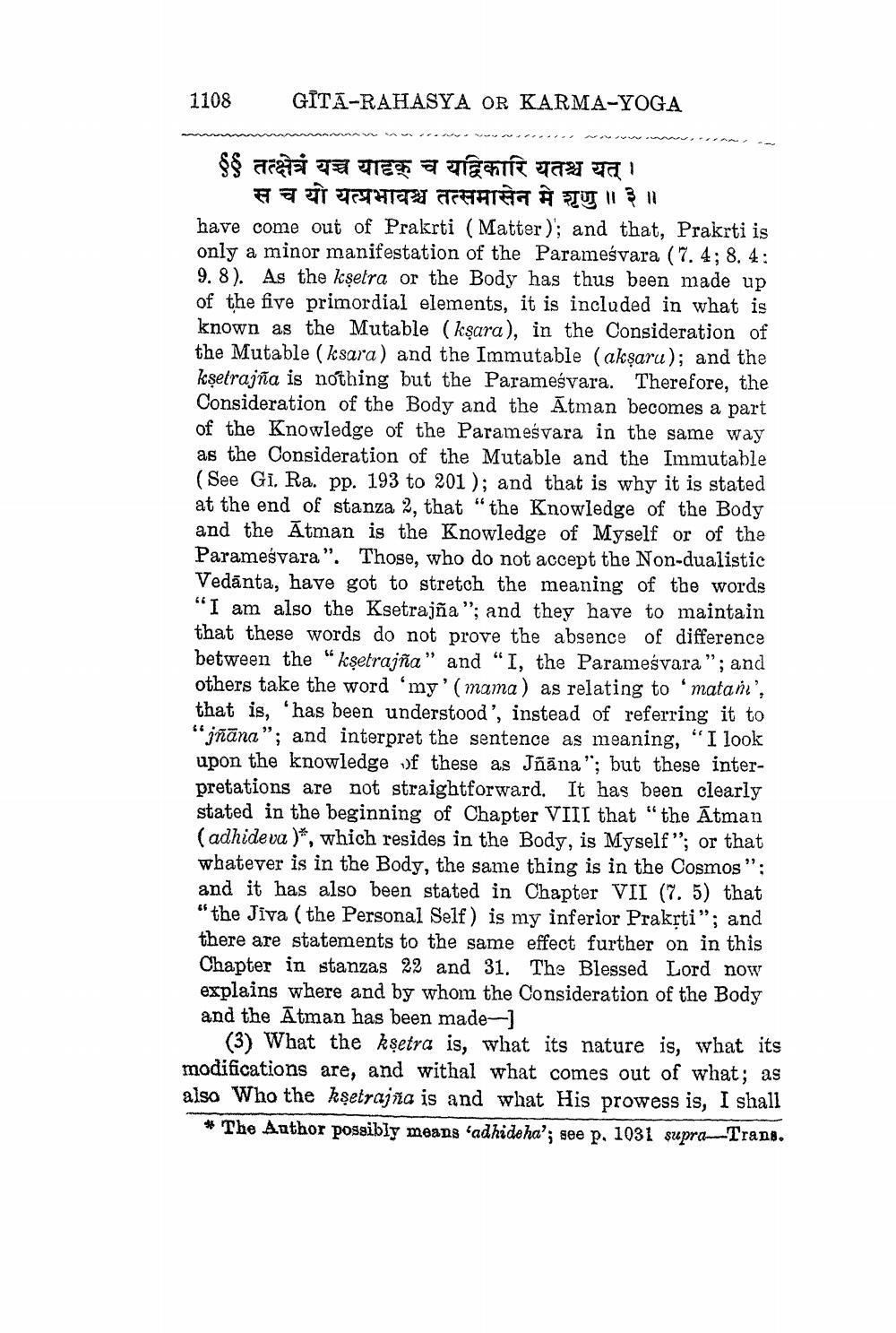________________
1108
GITA-RAHASYA OR KARMA-YOGA
६ तत्क्षेत्रं यच्च याहा च यद्विकारि यतश्च यत् ।
स च यो यत्प्रभावश्च तत्समासेन मे शृणु ॥३॥ have come out of Prakrti (Matter); and that, Prakrti is only a minor manifestation of the Parameśvara (7. 4; 8. 4: 9. 8). As the kşetra or the Body has thus been made up of the five primordial elements, it is included in what is known as the Mutable (kşara), in the Consideration of the Mutable ( ksara) and the Immutable (akşaru); and the kşetrajña is nothing but the Parameśvara. Therefore, the Consideration of the Body and the Atman becomes a part of the Knowledge of the Parameśvara in the same way as the Consideration of the Mutable and the Immutable (See Gi. Ra. pp. 193 to 201 ); and that is why it is stated at the end of stanza 2, that "the Knowledge of the Body and the Ātman is the Knowledge of Myself or of the Parameśvara". Those, who do not accept the Non-dualistic Vedānta, have got to stretch the meaning of the words "I am also the Ksetrajña"; and they have to maintain that these words do not prove the absence of difference between the "kşetrajña" and "I, the Parameśvara"; and others take the word 'my' (mama) as relating to 'matani', that is, 'has been understood', instead of referring it to “jñāna"; and interpret the sentence as meaning, "I look upon the knowledge of these as Jñāna"; but these interpretations are not straightforward. It has been clearly stated in the beginning of Chapter VIII that "the Ātman (adhideva )*, which resides in the Body, is Myself"; or that whatever is in the Body, the same thing is in the Cosmos"; and it has also been stated in Chapter VII (7. 5) that "the Jiva ( the Personal Self) is my inferior Praksti"; and there are statements to the same effect further on in this Chapter in stanzas 22 and 31. The Blessed Lord now explains where and by whom the Consideration of the Body and the Atman has been made
(3) What the kşetra is, what its nature is, what its modifications are, and withal what comes out of what; as also Who the kşetrajna is and what His prowess is, I shall
* The Author possibly means 'adhideha’; see p. 1031 supramTrans.




